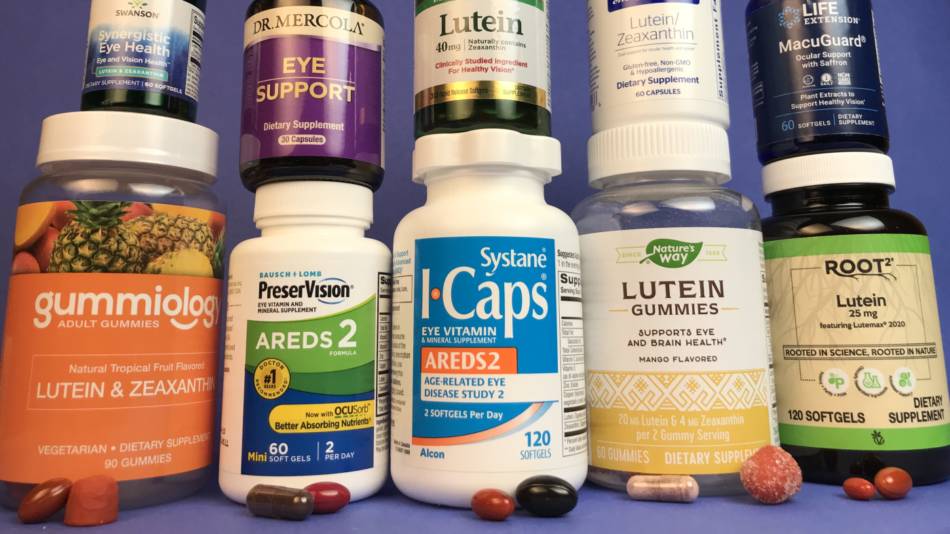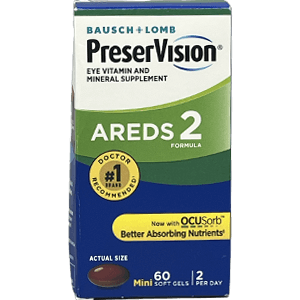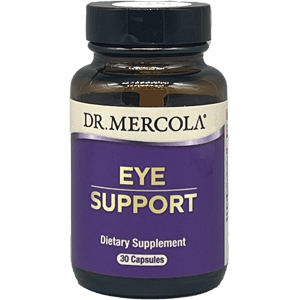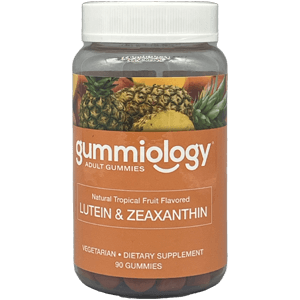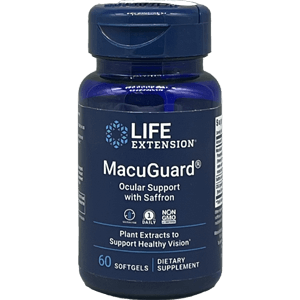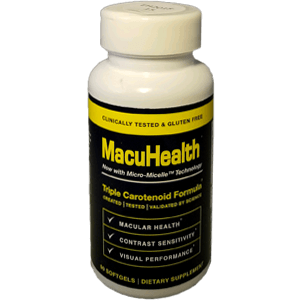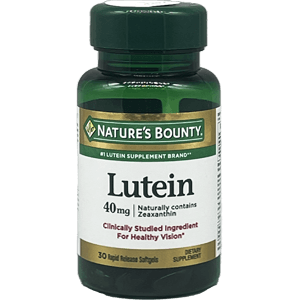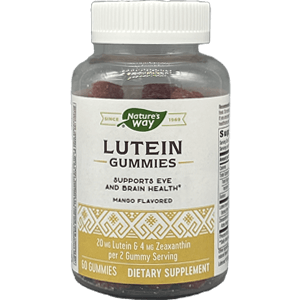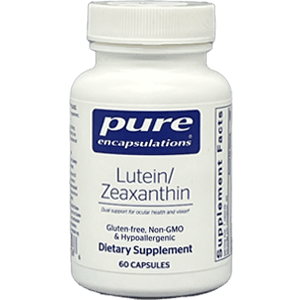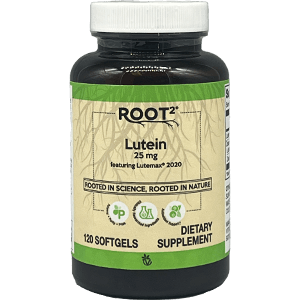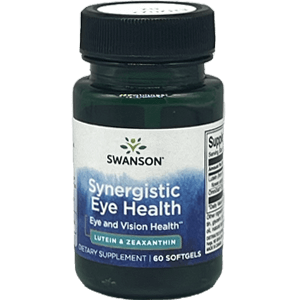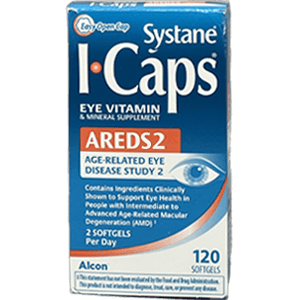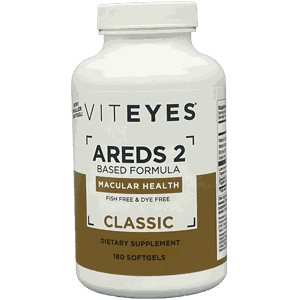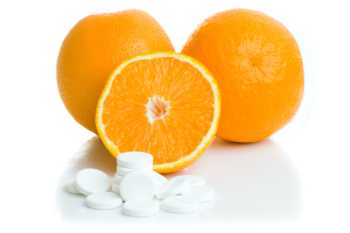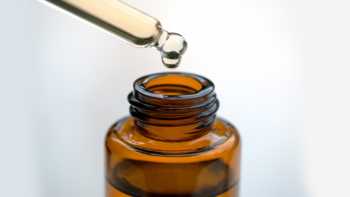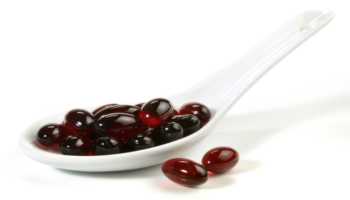Summary
-
What are lutein and zeaxanthin?
Lutein and zeaxanthin are antioxidant pigments found in the macula of the eye (in the retina) and are believed to protect the macula from damage (see What It Is).
-
What are the health benefits of lutein and zeaxanthin?
On average, people don't consume enough lutein and zeaxanthin in their diets and/or have low levels of lutein in their blood or low macular pigment density; for them, taking a lutein supplement may slow the progression of age-related macular degeneration (although it won't improve the condition). It may also reduce the risk of needing cataract surgery and improve some aspects of brain function (see What It Does).
-
AREDS:
Other ingredients, particularly zinc and vitamin C, may provide additional benefit in slowing the progression of age-related macular degeneration (see AREDS). Three formulas with these ingredients were tested and reviewed: Bausch & Lomb PreserVision AREDS2, Systane I-Caps, and VITEYES AREDS2 Classic. In addition, we assessed the ingredients in vision supplements that were not tested including Bausch + Lomb Ocuvite, EyePromise AREDS 2 Plus, GNC Eye Health Formula, Lipotriad Visionary, Ortho Molecular Products 4Sight, TwinLab OcuGard Plus, Nutrilite Vision Health, and USANA Visionex DS. (Be aware of unnecessarily high doses of zinc in some vision formulas, which can potentially cause adverse effects, including anemia -- see Concerns and Cautions).
-
What did CL's tests of vision supplements show?
Our tests showed that most products contained the lutein and zeaxanthin they claimed to provide, but one product had much higher amounts than claimed (see What CL Found).

Which vision supplements with lutein and zeaxanthin products are best?
We chose a Top Pick lutein supplement and a Top Pick AREDS2 supplement based on our test results, product ingredients and formulas, supporting clinical evidence, and value.-
How much lutein and zeaxanthin should I take?
A dose of 10 mg of lutein appears to be better than a lower dose (6 mg). Higher dose products (e.g., 20 mg to 40 mg) are common, although it is not known if a higher dose is better. Nevertheless, 20 mg has been shown to be safe in a 6-month study (see Dosage). To enhance absorption, it is best to take lutein and zeaxanthin supplements with a fatty meal, but be aware that consumption of certain foods and supplements may decrease absorption of lutein and zeaxanthin (see Concerns and Cautions). In addition, try to eat at least one orange per week and have fish at least once a week, as these are also associated with a reduced risk of AMD.
-
How much do lutein and zeaxanthin cost?
Lutein and zeaxanthin at a reasonable dose (10 to 20 mg) can be obtained for as little as about 10 cents per day (see What CL Found).
+— 34 sources
In addition the results of its expert testing, ConsumerLab uses only high-quality, evidence based, information sources. These sources include peer-reviewed studies and information from agencies such as the FDA and USDA, and the National Academy of Medicine. On evolving topics, studies from pre-print journals may be sourced. All of our content is reviewed by medical doctors and doctoral-level experts in pharmacology, toxicology, and chemistry. We continually update and medically review our information to keep our content trustworthy, accurate, and reliable. The following sources are referenced in this article:
- Richler Optometry 2004
- Bartlett Eur J Clin Nutr 2007
- Obana, PLoS One, 2015
- Korobelnik, JAMA Opthalmol 2017
- Akuffo, Eye 2015
- Age-Related Eye Disease Study
- Age-Related Eye Disease Study 2
- Christen, JAMA Ophthalmol 2020
- Chew, JAMA Ophth 2022
- Bahrami BMC Ophthalmol 2006
- Kono, Curr Med Chem 2014
- Stringham, Foods 2017
- Gioa, Front Ophthalmol 2024
- Bovier, Arch Biochem Biophys 2015
- Power, J Alzheimers Dis 2018
- Stringham, Nutri Neurosci 2017
- Stringham, Physiol Behav 2019
- Gopinath, Am J Clin Nutr 2018
- Li, Nutrients 2022
- Zhang, Graefes Arch Clin Exp Ophthalmol 2022
- Bahrami, BMC Ophthalmol
- Corte-Real, Food Chem 2016
- Olmedilla-Alonso, Nutrients 2024
- Evans, Eur J Nutr 2012
- EFSA Journal 2012
- Falsini, Invest Ophthalmol Vis Sci 2010
- Broadhead, Graefes Arch Clin Exp Ophthalmol 2019
- Gout, Nutr Res 2010
- Seddon, Br J Opthalmol 2016
- AAO Task Force on Genetic Testing, 2014
- Wahab, J Community Hosp Intern Med Perspect 2021
- Miatech, Cureus 2024
- Bahrami, BMC Ophthalmol 2006
- Satia 2009
You must
be a ConsumerLab.com member to get the full test results for lutein and zeaxanthin-containing supplements along with ConsumerLab.com's recommendations and quality ratings. You will get results for ten supplements selected by ConsumerLab.com and for two others that passed testing in ConsumerLab's voluntary Quality Certification Program.
This comprehensive review will guide you through the maze of "vision" and "eye health" supplements. In the report, you'll discover:

 Which vision supplements failed testing and which passed
Which vision supplements failed testing and which passed CL's Top Picks, representing products that provide the best dose, quality, and price
CL's Top Picks, representing products that provide the best dose, quality, and price The actual amounts of lutein and zeaxanthin in the supplements
The actual amounts of lutein and zeaxanthin in the supplements Comparisons of vision formulas in eye health supplements to the clinically studied AREDS and AREDS2 formulations, including our assessments of products not tested in this review: Bausch + Lomb Ocuvite, EyePromise AREDS 2 Plus, GNC Eye Health Formula, Lipotriad Visionary, Ortho Molecular Products 4Sight, TwinLab OcuGard Plus, Nutrilite Vision Health, and USANA Visionex DS.
Comparisons of vision formulas in eye health supplements to the clinically studied AREDS and AREDS2 formulations, including our assessments of products not tested in this review: Bausch + Lomb Ocuvite, EyePromise AREDS 2 Plus, GNC Eye Health Formula, Lipotriad Visionary, Ortho Molecular Products 4Sight, TwinLab OcuGard Plus, Nutrilite Vision Health, and USANA Visionex DS.
 Dosages of lutein and zeaxanthin known be effective and how to take them to maximize absorption
Dosages of lutein and zeaxanthin known be effective and how to take them to maximize absorption Foods that provide lutein and zeaxanthin (as well as another carotenoid, astaxanthin)
Foods that provide lutein and zeaxanthin (as well as another carotenoid, astaxanthin) What meso-zeaxanthin (as in the product MacuShield) is and whether you need to get it from a supplement
What meso-zeaxanthin (as in the product MacuShield) is and whether you need to get it from a supplement Concerns, cautions, and potential side effects for lutein and zeaxanthin supplements
Concerns, cautions, and potential side effects for lutein and zeaxanthin supplements
As a ConsumerLab.com member, you may print a copy of this report for your personal use.
You can access a special print version by clicking the "Print" icon in the upper right corner of this report.
You can then use your web browser's print functions to print the whole report or just selected pages.
You may also email or post a link to this report using the web address above.
Non-members using the link will see a free summary and can join to view the full report.
Other means of copying or distributing this report, in part or full, are not permitted.
If you are sight-impaired and your computer is having trouble converting the text in this report to speech,
contact us for assistance at Membership@ConsumerLab.com or by
phone at 914-722-9149.

